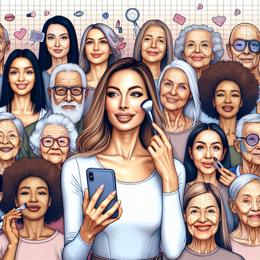Content created by AI
The Rise in Cosmetic Surgery Among Black Women in South Africa
In a recent development that showcases a significant cultural shift, black women in South Africa are increasingly turning towards cosmetic surgery to enhance their physical appearance. This trend has been illuminated by discussions with Dr. Pertunia Mathibe, a leading figure in body sculpting, and reports from Times Live detailing the surge in surgeries such as liposuction, butt augmentation, and particularly, the Brazilian butt lift (BBL).
Dr. Pertunia Mathibe, the founder of Dr Pert Centre for Body Sculpting, elaborated on the BBL procedure in a conversation with Gugs Mhlungu. The BBL involves the transfer of fat from unwanted areas of the body, like the stomach, to the buttocks to create a fuller look. This surgery is just one aspect of the body sculpting phenomenon, which encompasses a variety of procedures designed to alter the human body's shape.
Despite these surgeries becoming commonplace, they have not always been as accepted in the black community, often seen as a taboo. Dr. Mathibe's revealed that the desire for such body alterations has transcended past cultural apprehensions, reflecting a new era where personal aesthetics and self-improvement through cosmetic procedures are more openly embraced.
A significant factor driving this trend is the influence of global beauty standards and the high visibility of altered body types in the media. Furthermore, South Africa's top cosmetic surgeons now report waiting periods of up to two months, underscoring the high demand, with a majority of the clientele being black women.
Before considering any cosmetic procedure, Dr. Mathibe advises potential patients to come prepared with a budget of not less than R55,000, emphasizing that such procedures are a considerable financial commitment.
However, amidst the trend's popularity, Dr. Mathibe cautions on the potential complications that come with surgical procedures. Patients must thoroughly research and consult with certified professionals to understand the risks and realistic outcomes to make informed decisions about their bodies.
The rise in these procedures among black women is a narrative that goes beyond aesthetics. It's a dialogue that touches on identity, cultural dynamics, and the evolving perceptions of beauty within different communities. As with any medical intervention, the decision to undergo cosmetic surgery should be approached with care, comprehensive information, and a clear understanding of the risks involved.




